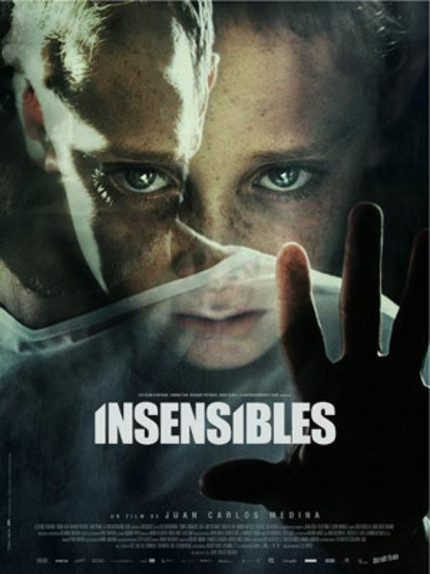TIFF 2012 Review: PAINLESS Finds Beauty In Horror

Painless is a film that follows two separate threads, threads separated by decades. The first begins in the 1930s with the discovery of a small group of children born without the ability to feel pain. It seems on the surface that this should be a boon to the youngsters but the results are anything but. Without pain they have nothing to check their more reckless or cruel instincts, they have no warning when their curiosity leads them astray. And so these children trigger a wave of tragedies. One girl lights her own arm on fire and admires the flames before moving on to bigger things. A hungry boy feasts on his own flesh. And the horrified adults lock them all away.
And in current times we meet David, a successful and driven surgeon. David is involved in a brutal and tragic car accident one that leaves him bereft, but the accident is only the start of his struggles. Medical tests post accident discover that David has leukemia, a disease that can only be treated using a bone marrow transplant from a close relative. And the only relatives David has - or so he thinks - are his parents. But approaching them for help sends David on a path to discovering a secret and horrible past within his own family, one that inevitably leads back to the painless children.
Absolutely beautifully shot and performed, Painless is filled with interesting ideas and images that establish Medina - with his first feature here - as a director of uncommon visual skills. Medina throws the gauntlet down early - the opening sequence is breathtaking for its beauty and audacity - and does not relent until the final frame. This is a man with some compelling pictures in his head and an uncommon ability to put them on screen.
Where Medina struggles slightly, however, is in a narrative that takes significantly longer than it probably needs to arrive at the point that the audience knows from the beginning is going to come - the intersection of the two stories - and a slight tendency to lose his characters in his themes. Take for example the doctors' early horror in the painless children. The lack of pain - and its consequences - are the driving message of the point but this is hardly a phenomenon that the doctors of the time would have been unfamiliar with or horrified by, the condition being symptomatically identical to leprosy which has been well documented for millennia. It seems a small thing but it sets the film off on an odd foot that it takes some time to recover from.
Though not without some minor flaws Painless is an intriguing debut by a very promising director. Expect a bright future for Medina.

Do you feel this content is inappropriate or infringes upon your rights? Click here to report it, or see our DMCA policy.






